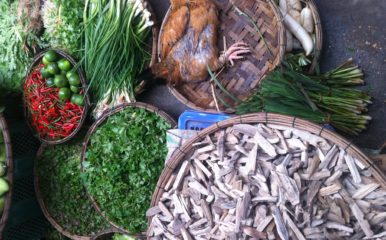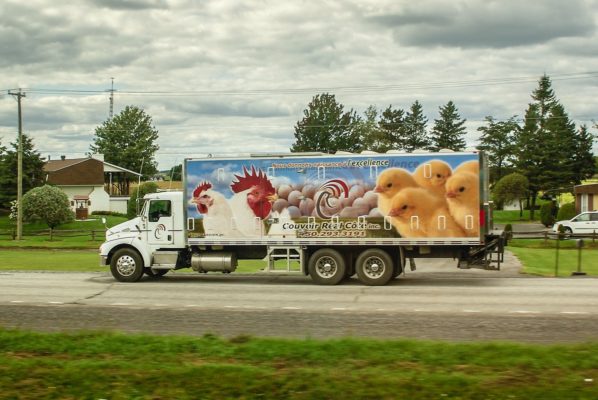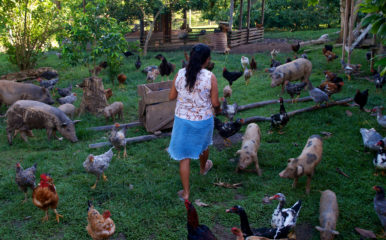
Roadmap Series
Food systems: local or regional or global
Published on 09/06/2021
Does it matter where our food comes from? And what can local cuisines and environments teach us about sustainability and food security?

Seán Ó Domhnaill/flickr
This event featured panellists Dr Sagari Ramdas, veterinary scientist at Food Sovereignty Alliance, India, and founder member and former Director of Anthra, and Professor Neil Burgess, chief scientist at UNEP-WCMC and project lead for the GCRF Trade, Development and Environment Hub. It was moderated by Professor Robyn Alders, Senior Consulting Fellow, Global Health Programme, Chatham House, and took place on Wednesday 9 June 2021.
Watch the recording here:
panellists' key messages
- Global supply chains in agricultural products and wildlife largely negative impacts on nature, except where sustainable use is practised by local communities.
- The global wildlife trade includes species groups that are known vectors of pathogen groups linked to human diseases.
- Replacement of wild meat consumption by domesticated animals, such as chickens, represents one possible pathway to lowered disease risk, improved health and reduced impact on wild species.
- The global food regime contributes to protein deficiencies, malnutrition and alienation of communities and has to be dismantled, for the survival of future generations and mother earth.
- The ongoing pandemic has served to magnify and uncover the vulnerability of this hegemonic food system structured on longer and longer global supply chains.
- An authentic sovereign, democratic, just and ecologically resilient food farming system is grounded on principles of solidarity and reciprocity, with ownership over the means of production and decision making in the hands of the smallholder food producers.
Further reading
- Lewis D and Wilkie D.S. (2020) COMACO, from snares to plowshares: A conservation and human wellbeing success story, Conservation Science and Practice
- Annapragada A (2017), How a Vaccine for Chickens Can Help Save the Lemurs, National Geographic
- Alders R and Kock R (2017) What’s food and nutrition security got to do with wildlife conservation?, Australian Zoologist


